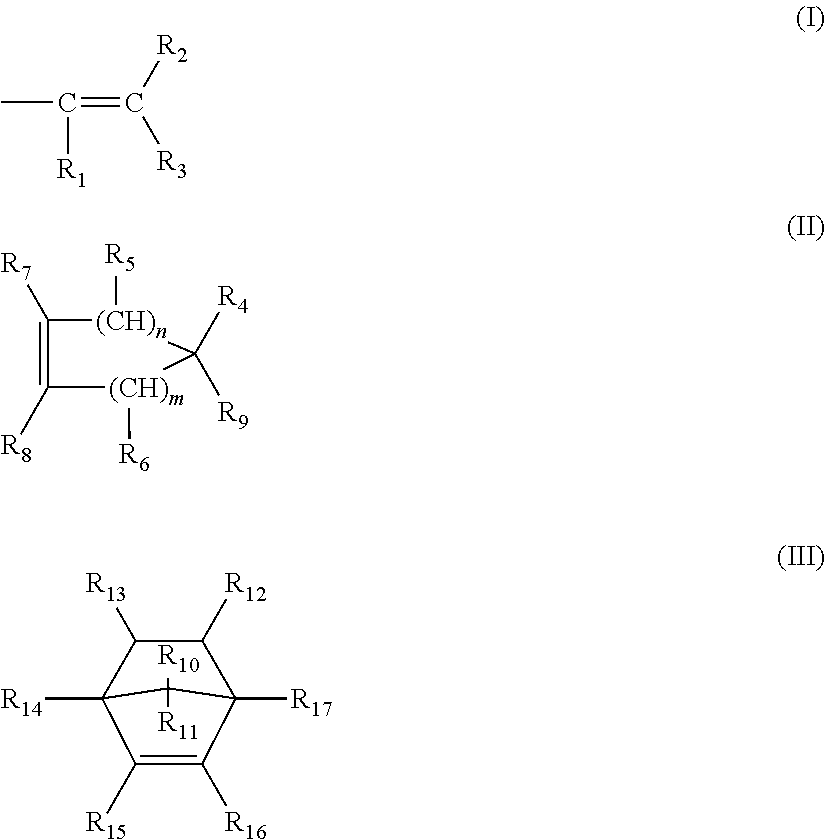Actinically-crosslinkable silicone-containing block copolymers
a technology of silicone hydrogel and copolymer, which is applied in the direction of instruments, optics, optical elements, etc., can solve the problems of corneal swelling, inability to easily circumvent oxygen, and undesirable growth of blood vessels in the cornea
- Summary
- Abstract
- Description
- Claims
- Application Information
AI Technical Summary
Benefits of technology
Problems solved by technology
Method used
Image
Examples
example 1
[0152]Oxygen permeability measurements. The oxygen permeability of a lens and oxygen transmissibility of a lens material is determined according to a technique similar to the one described in U.S. Pat. No. 5,760,100 and in an article by Winterton et al., (The Cornea: Transactions of the World Congress on the Cornea 111, H. D. Cavanagh Ed., Raven Press: New York 1988, pp 273-280), both of which are herein incorporated by reference in their entireties. Oxygen fluxes (J) are measured at 34° C. in a wet cell (i.e., gas streams are maintained at about 100% relative humidity) using a Dk1000 instrument (available from Applied Design and Development Co., Norcross, Ga.), or similar analytical instrument. An air stream, having a known percentage of oxygen (e.g., 21%), is passed across one side of the lens at a rate of about 10 to 20 cm3 / min., while a nitrogen stream is passed on the opposite side of the lens at a rate of about 10 to 20 cm3 / min. A sample is equilibrated in a test media (i.e., ...
PUM
| Property | Measurement | Unit |
|---|---|---|
| molecular weight | aaaaa | aaaaa |
| molecular weights | aaaaa | aaaaa |
| water contact angle | aaaaa | aaaaa |
Abstract
Description
Claims
Application Information
 Login to View More
Login to View More - R&D
- Intellectual Property
- Life Sciences
- Materials
- Tech Scout
- Unparalleled Data Quality
- Higher Quality Content
- 60% Fewer Hallucinations
Browse by: Latest US Patents, China's latest patents, Technical Efficacy Thesaurus, Application Domain, Technology Topic, Popular Technical Reports.
© 2025 PatSnap. All rights reserved.Legal|Privacy policy|Modern Slavery Act Transparency Statement|Sitemap|About US| Contact US: help@patsnap.com



